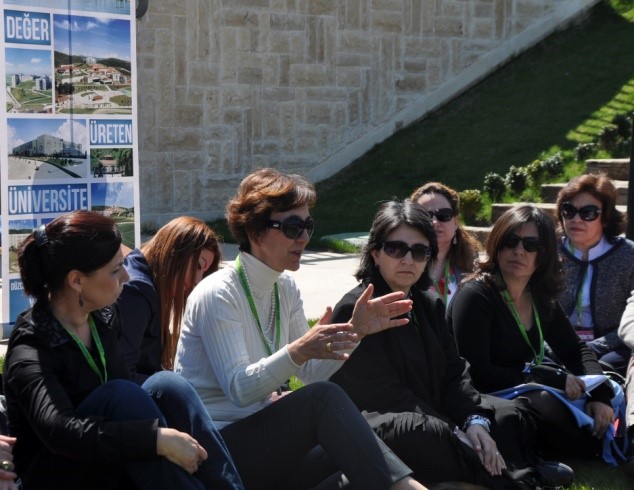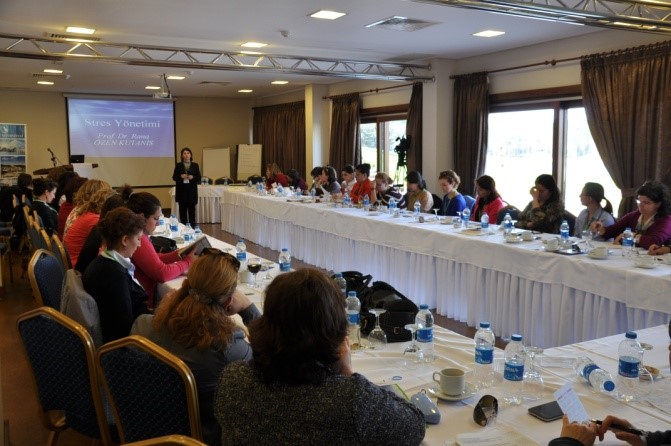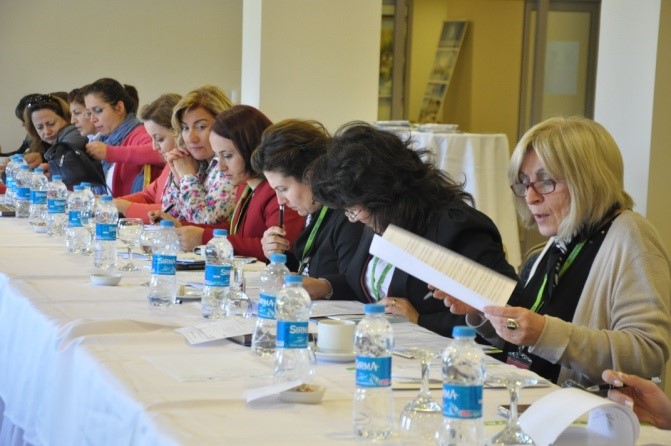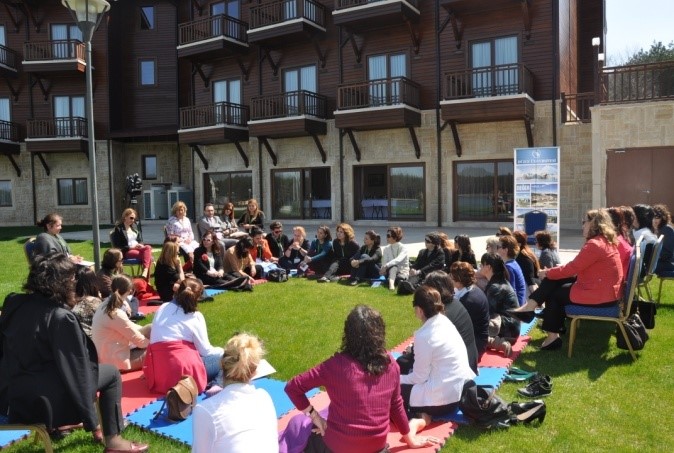Düzce University - Turkish University Leadership Improvement Programme (TULIP)
Education and Mentorship Program for Improvement and Empowerment of Woman Leadership in Higher Education
Prof.Dr. Funda SIVRIKAYA SERIFOGLU
President of Duzce University, Turkey
fundaserifoglu@duzce.edu.tr
“If the world will be a better place,
this will be achieved by the efforts of the women”
 Duzce University is a dynamic, fast developing, entrepreneurial, and democratic higher education institution. It is very advantageously located between Istanbul and Ankara, making it possible to enjoy the sociocultural richness of those metropoles, while providing a green, natural, and peaceful environment for scientfic work and leisure activities.
Duzce University is a dynamic, fast developing, entrepreneurial, and democratic higher education institution. It is very advantageously located between Istanbul and Ankara, making it possible to enjoy the sociocultural richness of those metropoles, while providing a green, natural, and peaceful environment for scientfic work and leisure activities.
Duzce University is founded in 2006 but its history dates back to 1976. By the time Duzce University was established as an independent university with three faculties in March 2006, the number of students was 5.500. Today,the number of faculties is 11, the number of students is over 16.000, and that of employees is over 1.600. The campus area, once full of bushes and mud, evolved to a beatiful campus with several education, research and social buildings, green areas, and sports facilities in about six years.
The differential characteristics of Duzce University is its philosophy which is reflected in the motto “Duzce University is a value creating university”. That philosophy is based on the use of scientific knowledge and academic experience to create and/or increase value produced by the private, public and non-governmental sectors in the region. Collaborations with stakeholders is therefore a key aspect of this philosophy.
The entrepreunerial spirit has resulted in several different projects, and the university was awarded the 2011 European Entrepreneurship Award from among 399 projects from 29 countries.
A very important pioneering project of Duzce University is the leadership and mentorship programs for female academicians. These programs address a dilemma in the Turkish Higher Education Area, which is the very poor representation of female academicians in the leadership positions despite the very good proportions of the women within all the professors. We call this dilemma ‘The Dilemma of Women Leadership in Higher Education in Turkey’.
The proportion of female students is 45 per cent, the proportion of female academicians is 40.8 per cent, and that of professors is 27.6 per cent. These statistics are competitive as compared to European averages, which are 40 and 20 per cent for female academicians and professors, respectively (She Figures 2012, Gender in Research and Innovation, European Commission). In natural sciences, medical sciences, and engineering and technology; the proportions of female professors are nearly twice the European averages.
Moreover, the glass ceiling index portraying the difficulty for woman academicians to step up from researcher to full professorship is lowest in Turkey (1.25) and close to the optimum value of 1.0, whereas the average is 1.90 for the European Union.
Yet the proportions of woman leaders are very very low in Turkey. According to a study accomplished by an education union, Eğitim-Sen, in 2006 (and not renewed afterwards), proportion of woman managers (both academic and administrative) in our universities is only 21.9. Among 176 universities, only 12 universities are lead by woman presidents (6.8 per cent).
Duzce University has addressed this problem and developed the first and only education and mentorship program for woman leadership in higher education in Turkey. To this end; a framework program called Turkish Universities Leadership Improvement Program (TULIP) is established. Within this program, a specific program titled Education and Mentorship Program for Improvement and Empowerment of Woman Leadership in Higher Education is developed.
First, a workshop is organized in November 2012 to discuss the obstacles hindering women from becoming leaders in universities, and to determine strategies to overcome these difficulties. Woman presidents, vice-presidents, directors of research centers on woman issues, academicians, politicians, and the only woman minister of Turkey have participated in this workshop. The final report summarizes problems and proposed solutions.
Following this workshop, as a pioneering attemp, the two-day Education and Mentorship Program has been organized in April 2013 in Duzce for female academicians with the title of assistant professor. The two research centers of Duzce University, DUKAM (Woman Studies Research Center) and LIDERIM (Leadership Research Center) have collaborated in this organization.
The program aimed at encouraging female academicians at the early stages of their academic career for becoming cadidates for leadership positions. We started with assistant professors to make sure that the overwhelmingly high number of male decision makers find it safe to issue permission to these women since they cannot be nominated as candidates for presidency yet.
The program enjoyed a surprisingly high demand from all over Turkey. The selection of participants to be invited was accomplished by a commision so that the diversity of research areas and the diversity of geographical locations are preserved.
As a result, 30 participants from 29 universities in 26 provinces of Turkey were invited. Six professional and academic educators and six mentors were involved. Leadership and personality tests were applied to participants, and results are interpreted by academicians on a one-to-one basis.
Seminars on academical leadership, leadership processes, stress management, disaggreement and negotiation management, and so on, were given, and roundtable discussions with current and former woman leaders as mentors initiated a vivid experience sharing platform.
At the end of the program, mentorship groups are formed which are lead by one of the mentors of the program. Mentors and group members sustained a communication mainly over e-mail messages. Feedbacks of group members on the effects of these mentorship groups are collected from time to time. They are mostly positive.
From among 30 participants of this first group, one participant has “undertaken the position of vice-president with the confidence gained from the experience sharing sessions in Duzce”.
To our surprise, the program has also drawn the attention of male academicians and we have ever since been subjected to insisting demand from them for a similar program which includes both sexes. Since our programs are free of charge for the participants, we try to save our sponsored budget for the empowerment of women leadership as for now. Yet, we definitely plan for a general program in near future.
We believe that the problems of our universities nor of our societies cannot be solved without making use of the emphaty power, and the transformational leadership skills of women.


